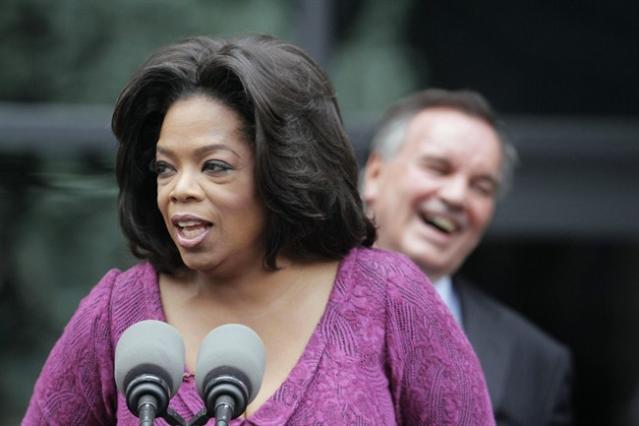 Daily Brew
Daily BrewOprah Winfrey’s talk show affected Canadian scandal, literature and activism

The final week of "The Oprah Winfrey Show" has inspired nostalgia about how the Chicago-based host influenced daytime television programming.
And with more than 5,000 episodes behind her, in a 25-year run that comes to an end next week, the host spotlighted a few Canadian stories along the way.
The early seasons of "Oprah" had a greater focus on sensationalism, which spawned so many imitators she toned it down in favour of a more motivational approach. But she could also spread public awareness about a scandal.
Shane Earle, whose lawsuit against the Mount Cashel Orphanage in St. John's over physical and sexual abuse during the mid-1970s led to a public inquiry, drew wider attention to the case with a 1989 appearance on Winfrey's show.
A story about how he lit some garbage on fire in the basement of the orphanage, then went upstairs to bed with the hopes that the building would burn down, was precisely the sort of confession that made the show popular.
When the format evolved to incorporate a regular book club, though, a couple of Canadian writers benefitted from the endorsement.
Right after Jonathan Franzen publicly balked at the idea of having his novel "The Corrections" featured as the almost-monthly Oprah's Book Club pick, and had his invitation rescinded, she opted for back-to-back authors who appreciated the honour.
Rohinton Mistry's "A Fine Balance" was picked in November 2001, and Ann-Marie MacDonald's "Fall on Your Knees" was highlighted in January 2002, which resulted in mainstream U.S. attention for books that had already been Canadian bestsellers. Both were chosen just in time, too, as Winfrey reduced the frequency of the feature.
A more familiar Canadian face, Craig Kielburger, got a turn in the "Oprah" spotlight in 2008. Free the Children, the group he founded at age 12 in 1995, was featured for its campaign to recruit young ambassadors to help their peers in developing countries.
"You're never too young to change the world," Winfrey reminded her audience that day.
But as time ran out on the chance to appear on "The Oprah Winfrey Show," the less amenable the host seemed to be to requests, as Toronto motivational speaker Emmanuel Lopez learned.
While he gained attention from The New York Times for pasting photographs of his head over screen grabs of "Oprah" guests on his blog, a technique Lopez said was inspired by the visualization principles of "The Secret," the ploy failed to generate an actual invitation.
(CP Photo)

